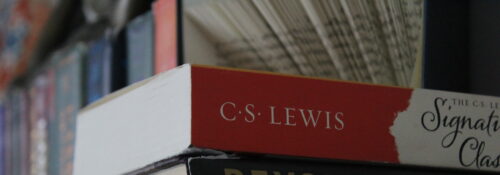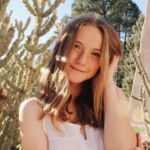
Hillsdale Chemistry Professors’ Book Recommendations: Part 2
Written by Brynn Elson
Dr. Christopher Hamilton
Biochemistry
Dr. Hamilton is a member of a sci-fi and fantasy book club that currently comprises many faculty both inside and outside the science departments. Members include Dr. Timothy Dolch (physics), Dr. Elizabeth Fredericks (English), Dr. Blake McAllister (philosophy), Dr. James Brandon (theatre), and Mrs. Brenna Wade (one of our librarians). Some of Dr. Hamilton’s favorite sci-fi books include The Foundation Trilogy by Isaac Asimov, Neuromancer by William Gibson, Project Hail Mary by Andy Weir, and most of Ray Bradbury’s works.
Dr. Hamilton also enjoys alternative history books—in the same realm as sci-fi, perhaps, but with a historical twist. Some of his favorites include Harry Turtledove’s books, which he describes as dependable and formulaic, but still exciting. Turtledove’s Great War Trilogy hypothesizes how the world would be different if the South had won the Civil War, while Guns of the South describes an alternative reality in which someone from the future gave the South AK-47s.
Like Dr. Kazmier, Dr. Hamilton also enjoys Russian literature—he listens to segments of Anna Karenina by Leo Tolstoy whenever he goes on a road trip. He also recommends Tasting Beer by Randy Mosher to anyone interested in brewing their own beer (like him) or simply learning about the finer points of beer-tasting.
Dr. Hamilton is well known for his cheesy puns. However, he wants readers to know that he doesn’t own any books about pun-making—all of his jokes are spuntaneous.
Dr. Mark Nussbaum
Analytical Chemistry
Dr. Nussbaum is a self-proclaimed C.S. Lewis fan, and he ranks Mere Christianity and the Chronicles of Narnia near the top of his list. In his words, Mere Christianity is a valuable read “because it is such a logical and wise (and practical) book about what Christianity is all about.” He also enjoys The Hobbit and the Lord of the Rings trilogy because they, like the Chronicles of Narnia, “are fun excursions to fantastic (in all senses of the word) worlds and characters, with abiding truths and wisdom for life woven within them”—not to mention that they’re purely fun to read! He enjoys The Once and Future King by T. H. White for similar reasons: “This is another excursion to another time and place, yet so full of the best and worst of what it means to be human. It’s a noble tragedy that stirs one with longing for what could be and grief for our inability to grasp it.”
Even one of Dr. Nussbaum’s “science favorites” hearkens back to the divine. The Language of God by Francis Collins discusses Collins’ journey as the director of the National Institutes of Health, a medical doctor, a physical biochemist, and the leader of the Human Genome Project. However, the book “mostly talks about the amazing world of molecular biology and how it interfaces with belief in God.”
Dr. Ian Walsh
Biochemistry/Physical Chemistry
During my interview with Dr. Walsh’s colleague, Dr. Hamilton, he predicted that most of his friends in the Physics Department would pick Dune as their favorite book. Unsurprisingly, Dr. Walsh—a professor of physical chemistry—considered Dune to be one of his favorites. Although this is a perfectly respectable choice (it was designated as the world’s best-selling science fiction novel at one point), Dr. Walsh backtracked as soon as I mentioned that he had fulfilled Dr. Hamilton’s prophecy.
Hyperion by Dan Simmons is another of Dr. Walsh’s favorites. This 1989 science fiction novel is similar in structure to The Canterbury Tales (so perhaps it will be more amenable to English majors). Like any good sci-fi novel, it includes epic voyages, exciting inventions, and plenty of intergalactic war.
Dr. Matthew Young
Physical Chemistry
Although Dr. Young is a physical biochemist like Dr. Kazmier and Dr. Walsh, his favorite book is nothing like theirs. He chose All the Light We Cannot See (which happens to be my personal favorite) by Anthony Doerr. The book, set during World War II, switches perspectives between a German boy and a French girl. Doerr’s beautiful novel, populated by characters both literally and figuratively blind, is a thought-provoking commentary about the age-old conflict between light and darkness and our own blindness to truth.
Dr. Young claimed that there’s a lot of crossover between science and the humanities: Humanities professors tend to read about science, and science professors still read great works of literature! In some sense, their desire to experience something outside of the norm (i.e. the subject matter that they teach) probably strengthens this crossover.
Hopefully, this article series convinced you that chemists not only can read, but love to read! Some science professors do seem to love stereotypical “sciencey” sci-fi books, but most are just as in love with classic literature as other Hillsdalians. Furthermore, members of Hillsdale’s faculty and staff in all departments (from physics to library science!) are members of the sci-fi book club — just further proof of the interdisciplinary nature of Hillsdale’s curriculum and faculty.
Read more about chemistry at Hillsdale here.
 Brynn Elson, ’23, is a biochemistry major with a decent comprehension of the English language. She enjoys drinking coffee, playing the clarinet, and overcommitting to things. When she’s not studying (which is rare), you might be able to find her running (read: getting lost) on the back roads or complaining about Hillsdale’s lack of mountains.
Brynn Elson, ’23, is a biochemistry major with a decent comprehension of the English language. She enjoys drinking coffee, playing the clarinet, and overcommitting to things. When she’s not studying (which is rare), you might be able to find her running (read: getting lost) on the back roads or complaining about Hillsdale’s lack of mountains.
Published in January 2023